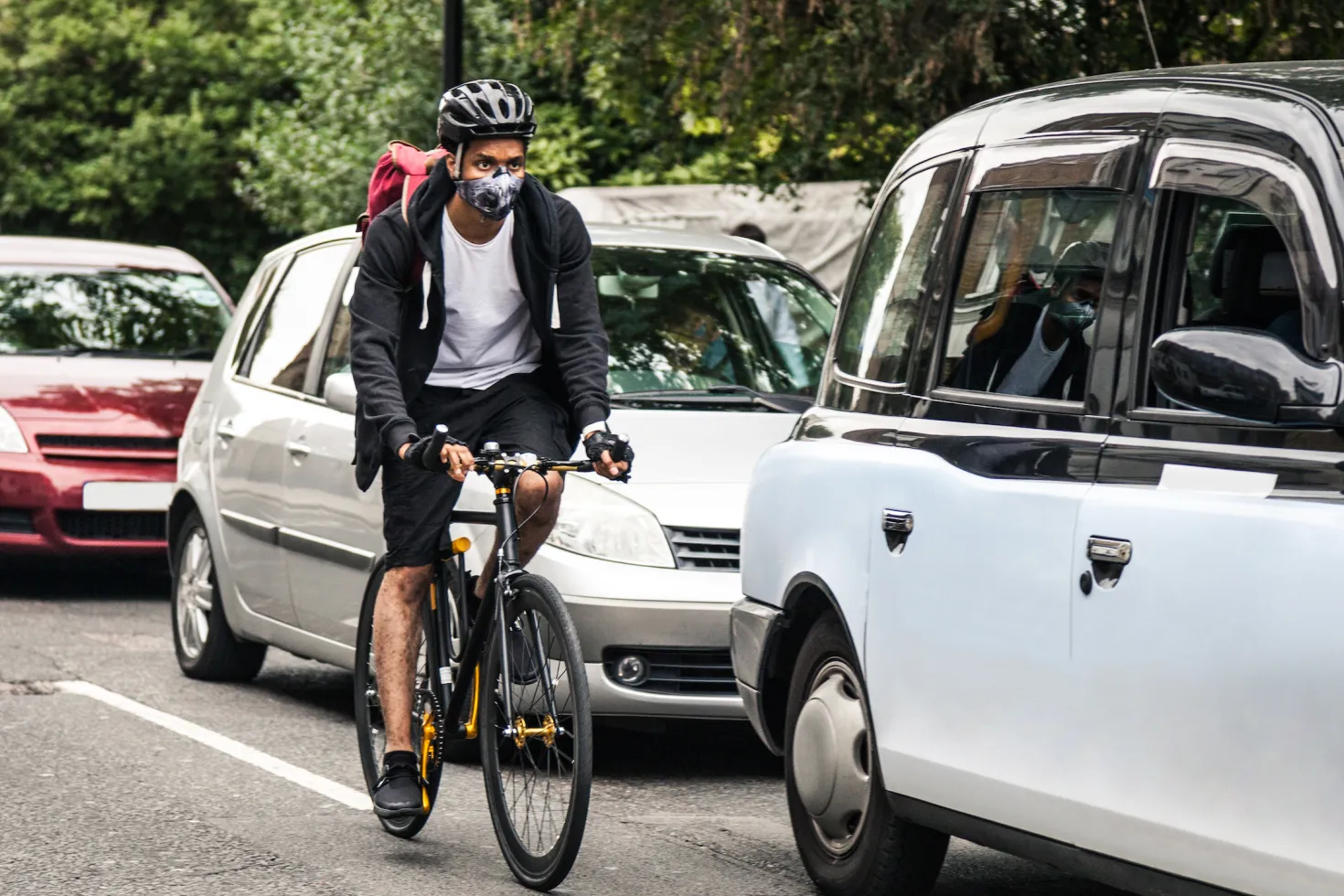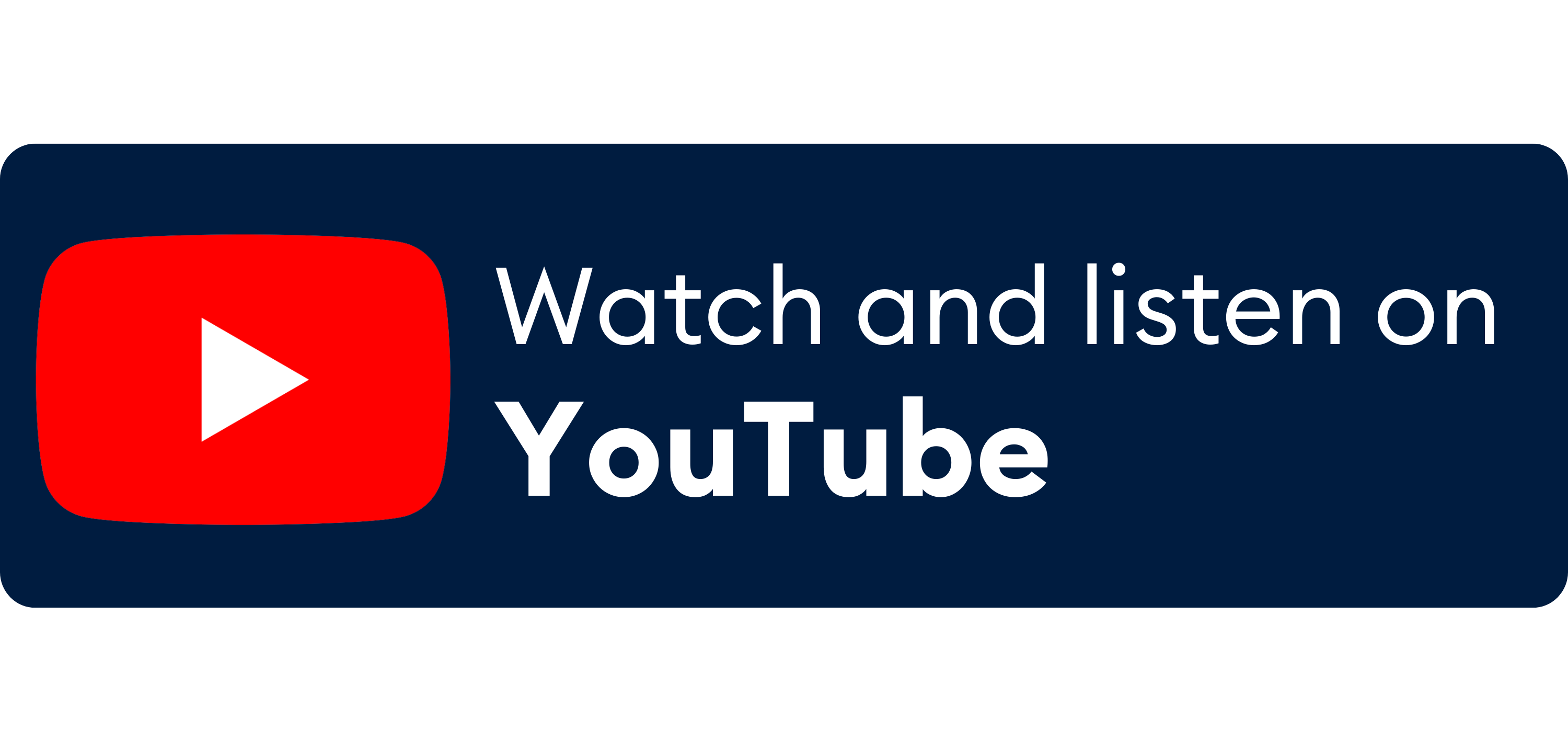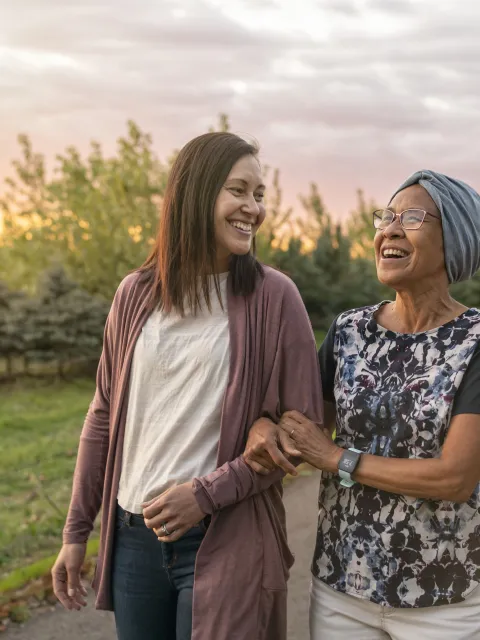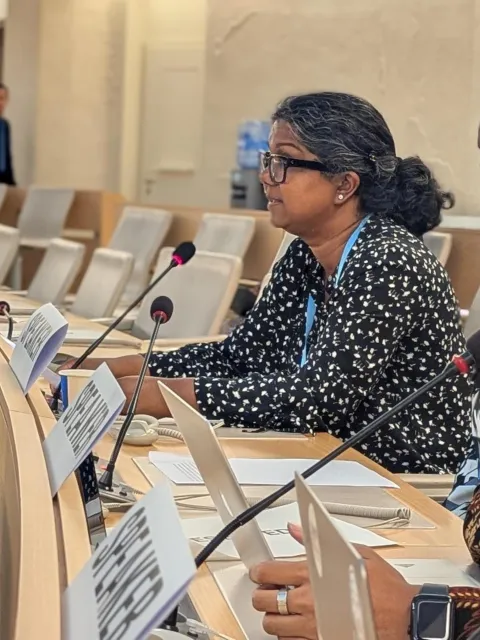Podcast "Let's Talk Cancer": Air pollution, a public health crisis – from smog to solution

In this podcast episode, Dr Maria Neira of WHO explores the impact of air pollution on human health and ways to create systemic, positive change.
A staggering 99% of the population is breathing air that exceeds safe quality limits set by the World Health Organization (WHO). This polluted air, filled with fine particulate matter from various sources like fossil fuel combustion, wildfires, and construction sites, poses significant health risks – notably, an increased risk of cancer.
This episode of "Let's talk cancer" delves into this public health crisis with Dr Maria Neira, Director of Public Health, Environmental and Social Determinants of Health at WHO, examining the connections between health and environment, and how measures to reduce air pollution not only mitigate the risks of developing disease but has wide-ranging benefits for health by promoting more active lifestyles.
"We have every year 7 million [deaths]. Imagine the population of Paris, Rome, Madrid, all together. Imagine this population disappearing every year, dying because of exposure to the bad quality of the air we breathe."
– Dr Maria Neira, Director of Public Health, Environmental and Social Determinants of Health at WHO
See podcast transcript below
Listen on: Spotify | Stitcher | Apple Podcasts | Amazon Music | Audible | Deezer
Get notified of new podcasts by email
Podcast transcript
Sonali Johnson, Head of Knowledge and Advocacy:
Hello and welcome to Let's Talk Cancer. I'm Sonali Johnson, head of knowledge, advocacy and policy at the Union for International Cancer Control, an organisation that unites and supports the cancer community to reduce the global cancer burden. A staggering 99% of the population is breathing air that exceeds safe quality limits set by the World Health Organization. This polluted air filled with fine particulate matter from various sources like fossil fuel combustion, wildfires and construction sites, poses significant health risks, notably an increased risk of cancer. To delve deeper into this public health crisis, we have the privilege of inviting Dr Maria Neira, Director of Public Health, Environmental and Social Determinants of Health at the World Health Organization. Dr Neira, welcome and thank you for joining us today to discuss the impact of air pollution on human health, particularly cancer, and ways to create systemic positive change.
Maria Neira: Thank you for inviting me. It's a great pleasure and so happy to have the opportunity to talk to your community.
Sonali Johnson: First of all, can you tell us what are the primary forms of air pollution, both outdoor and indoor, and in what regions air pollution is the highest? So if you could give us a bit of a geographical spread of air pollution.
Maria Neira: Thank you. Let me start with a horrible number. Sorry, but we need to put this number on the table. We have every year 7 million. 7 million. 7 million means imagine the population of Paris, Rome, Madrid, all together. Imagine this population disappearing every year, dying because of exposure to the bad quality of the air we breathe. Obviously, not all the regions around the world are the same. If you look at North America and Europe, there has been an incredible increase in the quality of the air in the last decades. But still, even in the European region, we have every year 400,000 deaths of our citizens in Europe dying because of exposure to air pollution. But when we look at other places of the world, when we look at India, when we look at Mexico, when we look at Peru, when we look at China, those are the places suffering the significant consequences of these very high pollution levels. We have cities where pollution levels are going more than 50 times beyond what is recommended as a quality standard for air by the World Health Organization.
Sonali Johnson: Well, thank you. Those are really sobering and worrying statistics you've given us. Can you talk us through how air pollution impacts human health? What happens to the human body?
Maria Neira: If there is something that puts humans on the same level, it is the fact that we need to drink. We need to have food and we need to breathe. But you can spend even one week without eating. You can spend a few, maybe days eventually without water, but try to be beyond five minutes without breathing. That will be a horrible experience and you will not be able to share that experience with anyone. So when you breathe air that contains toxic particles, that it contains the result of the exhaustion of the cars that we use in our cities, the result of this combustion of fossil fuels, that toxic particles, which are very, very tiny, they go into your respiratory system, they have a first contact with our lungs. So there will be consequences such as lung cancer. There will be consequences such as chronic respiratory diseases, asthma, for instance, pneumonia as well. You have other problems related to your respiratory system. But this horrible, tiny particles have decided that the respiratory system was not enough. So because they are so small, they can go to the bloodstream and once you reach the bloodstream means that you can reach any organ in our body because, you know, the bloodstream goes all around our body.
Maria Neira: So the second horrible consequence of those toxic particles is in our brains. Stroke is one of the main consequences and many other degenerative diseases, behaviourally related cognitive problems. We will reduce our capacity to learn and not only the brain. You can go to your cardiovascular system and therefore you will have problems with your heart and many other diseases. To give you an idea, even in pregnant women we can find those particles in the baby, even if you didn't breathe yet because you are a foetus, you can already suffer the consequences of your mom living in a very polluted area. Fundamentally, air pollution can affect any organ in our body and is mainly responsible for several types of cancer, and we need to do much more to respond to the magnitude of the problem we are confronting. We need to be able to be very ambitious and to respond very quickly as well because this is a major public health challenge and emergency.
Sonali Johnson: Thank you, Dr. Neira. Indeed, as a cancer community, we are increasingly concerned by air pollution and air quality in cities, as you've mentioned, and seeing lung cancer cases in patients who have never smoked or been around people who smoke but yet live in polluted cities. So this is something that we are concerned about as a community and will be working more with other communities. As you've said, this affects various areas of health. I just want to go back to the point that you've made about cities. So can you talk us through the sorts of urban planning strategies that health authorities and city authorities could be thinking about to address this problem now?
Maria Neira: Thank you for the question, because this is where the more positive and motivating part start. If we have 7 million premature deaths every year caused by air pollution and many, many diseases associated with that, it will require a long period of hospitalisation, a lot of cost and suffering. The good part is that they can be prevented and the prevention will be something as simple as saying that clean air is a human right. We are very demanding about the quality of the water we drink. We should have something as restrictive as that in terms of the quality of the air we breathe. Sometimes we call air pollution a kind of invisible killer because it's not something that you consume, but it's something that simply goes into your body without you realising it. So at the city level, at the urban level, we can do a lot of interventions promoting a sustainable transport system. So if we reduce the use of our private cars, we take more public transport. And that is the role of the mayors to ensure that we have a sustainable public transport system that will dissuade people from using cars that are very pollutant.
Plus, obviously we need legislation to tell us which cars are the most polluting or the less polluting. We need the polluters to pay for that. We need to make sure that each country and each city moves to more sustainable sources of energy. Fossil fuels are the tobacco that is our enemy. The combustion of fossil fuels is killing us, literally. If I could, I would put a disclaimer in all the petrol stations saying fossil fuels kill exactly as we have on the tobacco because the responsibility and the cost that this is having on society is immense. In many countries, developing countries, they are still doing waste management, they are still doing incineration. And in certain countries, in certain cities, you still have industry within the city and it's very poor environmental standards. So all of those things the citizens need to be aware, demand, put pressure on their politicians, on their mayors. Look at the Mayor of London, he is taking now very courageous measures with extremely low emission zones with some taxes and dissuasion of the use of cars and this is proven to be a good thing to reduce pollution.
Sonali Johnson: Yes, there is a demand for action. In fact, in Switzerland, where he is based, recently, Swiss voters backed a new law that commits to reaching zero emissions by 2050. This might seem like an obvious or difficult question. We don't want to talk about the cost, but sometimes these things come into the discussion. Is it cost-effective for countries to become carbon neutral or to become more environmental and safe? Now we've of course, for our planet, yes. But to get at those naysayers, you say, well, this is going to cost me as an individual more money. This is going to cost my country more money. What can we say to them?
Maria Neira: Well, those who are using economic arguments to postpone action on tackling the causes of climate change, they don't realise that we are already paying for that. I mean, when they say we cannot become carbon neutral because it will cost us such and such. The health system is already paying 77 billion because of the health consequences of being exposed to climate change and air pollution. So the good news again is that if we tackle the causes of climate change, the immediate, most important benefit will be the reduction of air pollution. Becoming carbon neutral will be the most cost-effective, powerful, rewarding, extraordinary public health intervention. Because by tackling the causes of climate change, what you are doing is to promote interventions that are very good for our health. Let me tell you something. Some months ago, a friend of mine who is a journalist was living in a very polluted city. She was there with her small kids. And she told me that during the three years that she was working there, her kids were once every two weeks at the hospital, bronchiolitis, bronchitis, asthma, complicated asthma. And the moment she moved away from there, kids were perfectly in good health. So the question to me was, tell me the truth, Maria, by how many years I have reduced the life expectancy of my kids by living in such a polluted area. I said, Hey, I'm not answering this for sure. The important thing is that now you are living in an area that is less polluted and you can see very well the benefits for your health. When people understand that climate change is not just about beautiful mountains and beautiful glaciers and green planets and all of that is about our lungs as well as our health, then people become extremely powerful. And I'm sure that the cancer community more they know about the linkages between air pollution and several types of cancer, not just te lung cancer. I'm sure they will be irreversible. The movement, the cancer community has been doing incredible work, so we need you and air pollution as well to move mountains together.
Sonali Johnson: Well, I think many of our members would be ready to take up that challenge. We certainly do have a history of advocacy and activism in our countries. When we go back to this economic argument, not only is it the right thing to do for the future generations for our planet, we have one home. But the impact on the health system with the rising burden of non-communicable diseases of which air pollution and a lot of the pollutants that we're exposed to is a main cause is something that really does concern us. But this brings me to another question that I have for you, which is on equity, because as you've mentioned, there are people who are able to leave a polluted city and move to greener pastures. And those people who are unable to do so. And I think when we talk about justice and human rights, this really is something that we should all be concerned about. What kind of efforts do you think need to be made there as well so that we can all benefit from clean air?
Maria Neira: Safe air inequity is so much linked to air pollution and environmental issues, because first you can choose the type of water you drink. If you are lucky enough, you can drink bottled water or you live in a country where the standards and the quality of the water are good. But even if you are a very rich person and you live in one of those very, very polluted cities, there is not much you can do. When you go out. You need to read that bad toxic air that is affecting you. However, the inequities are as well in the different cities. You might live in London on an area where you are not in the middle of the road, which is one of the most polluted places. So, yes, inequity even in big countries, big cities, you have citizens that will be living near a very polluted road and others that will be living in areas where they can have and afford a nice garden or a nice environment, green environment because it's a privileged area. Some people are promoting those individual devices where you can check the quality of the air in the different parts of the city. But once you know the bad quality, if you need to work in that area and you cannot choose, as my friend, the journalist that moved to another country, you are in trouble. So inequities are exceptionally big in terms of air pollution.
And that's why we need to raise our voices very, very strongly on mayors. They have a very strong power because they are close to citizens. So we can measure the quality of the air of your city. That is something that each citizen and particularly the cancer community should have a monitor to see every day. You go to the page, you can check every day. What is the air quality of your city or your area where you live or you work and use that to put pressure on your politicians? We saw that in Beijing, for instance. It was a very big control of the standards in terms of air pollution and the levels. The numbers were so high that the citizens started to protest, you know, which is not very common, but because of their health, they started to exceptionally protest. And thanks to that, some measures were taken. Check the quality of the air on your city, knowing how much is different to the recommended standards of WHO. And then when you vote or when you demonstrate and when you take your car. Think about that and do advocacy with others as well. At school, at your work environment, at the hospital with your friends. Everyone should do advocacy on this because this is really killing us.
Sonali Johnson: We are seeing a lot more citizen engagement, aren't we? And we are seeing more engagement of communities around the world. Of course, Greta Thunberg is, you know, the young person with the face who did a lot of activism, but there are many other young people interested in this topic. How can we talk to young people and engage young people in these efforts? What should we be doing from the earliest age? And a second question I have for you, which is a slightly more tricky one, is, you know, you work on the social determinants and the commercial determinants of health. The other side of the coin is sort of the interference and the sort of hesitancy or lobbying from industry. So how can we create that demand, bringing in the younger generations and at the same time put pressure on our government not to be influenced by these polluting industries?
Maria Neira: Let me start by the second one. I think I was saying that pollution is the new tobacco in the sense that, you know, we need to raise awareness, we need to create a big movement, we need to do something very strong, even legislation. Why not? Maybe we should impose by law the air quality standards. That will be my dream. I want to make sure that each government should be made accountable for the quality of their citizens' lives. And I want to make sure that any politician will be able to say, I didn't know that this was bad for your health. No excuses. Everybody knows that this is bad for your health, so it's your responsibility to protect your citizens. So maybe we need to go as far as we did for tobacco, having a law. So this will be the first thing. On the commonality with tobacco. However, tobacco had one industry behind doing a lot of lobby, which was the tobacco industry. In the case of pollution, we are not very lucky because we have many of those, but essentially is the fossil fuel and the transport and all of that so we can work with them. I think taxes definitely and stop giving subsidies to fossil fuels because is ironic, horribly ironic that we are still giving subsidies as governments to what is creating problems in the health of our citizens. And when you look at the number of subsidies we are giving is outrageous. So we are giving subsidies to something that then will send our people to hospital where then we will be paying three times the subsidies that we were giving to the industry.
So where is the logic here? Which policy maker, which government is able to have such a perverse logic here? Because it's absolutely perverse. So on subsidies, on taxes, on the commercial determinants, we need to go for the transition to clean sources of energy. There are many movements. The youth. We have "Moms for clean air" as well. I think they are very powerful When you have a mom fighting for her child who has a asthma. Wow, those movements are powerful. So I hope that moms and dads of the cancer groups can do the same. You know, claiming that we have the right to breathe air that will not cause us damage. I mean, I don't want the air of the mountains here in Switzerland. That will be a dream, but it will be enough that we breathe air that at least they will not kill us. And this is not the case at the moment. So we have many movements, youth and others now joining, but not enough. We need more daily routine. Greta's each of us. We can be a Greta each of us. So any citizen, a grandma, a grandfather, a mom, a school teacher, of course, doctors and health professionals. We should all be a Greta and promote a more sustainable way of living, commuting, producing, consuming. So plenty of things to gain if we are good advocates or plenty of things to lose if we are accepting the situation as it is now.
Sonali Johnson: And just one last question, which is more on what is the United Nations doing? If you could talk us through some of the high-level and international efforts on this as you are particularly leading, who's work on the environmental side of things and on air pollution? Can you talk us through what we can expect to see Dr. Neira in the next years?
Maria Neira: Well, we are putting on the COP agenda this year, for the first time ever, a health day. That has been a titanic effort. But here we are. Now we will have a healthy What do we want? We want to make sure that we present a scenario telling people how much climate change and air pollution are affecting our health. Second, the fact that we need to protect our citizens from those risks, and for that we need to reduce pollution. We need to reduce emissions. We need to prepare our health system to cope with the consequences that are already there. And we need to adapt our health system to cope with that. And third, we are promoting the fact that by cutting pollution and emissions, the health benefits will be enormous.
Sonali Johnson: Thank you so much for these very inspiring words. We did start on a very depressing start, but we really ended with the possibilities for action for all of us working together in an individual capacity as a family and as a community and society. So thank you for this great insight into the work that's going on.
Maria Neira: Thanks for having me. A great pleasure.
Sonali Johnson: Thank you for listening to Let's Talk Cancer. If you want to know more about air pollution, please visit our website where you can find further information and a social media toolkit. If you're interested in cancer and the environment, why not listen to our podcast on the harms of the tobacco industry on our Health, published in May 2022. And if you have a moment, please do give us a rating and share the podcast. It really helps us reach a wider audience and inform more people about issues surrounding cancer.
Last update
Thursday 31 August 2023




